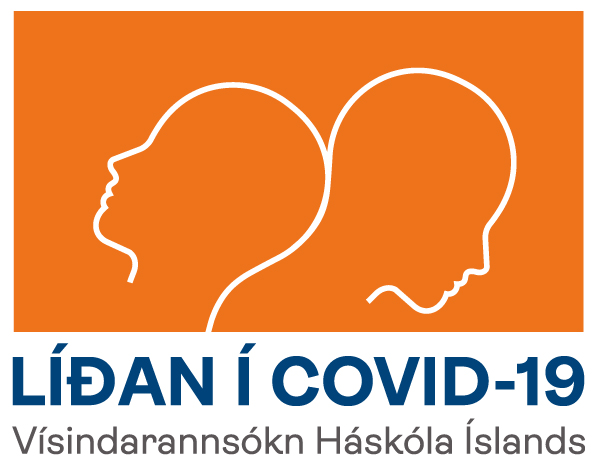
ABOUT
The COVID-19 National Resilience Cohort is a nationwide study on the impact of COVID-19 pandemic on health and well-being of Icelanders.
The target population are all individuals, 18 years or older, residing in Iceland, with electronic/Bank IDs. The participants answer an extensive web-based questionnaire on their mental and physical health, exposure to COVID-19 related factors within the family, change in lifestyle and social interactions. The participants are then prospectively followed in subsequent study waves and by record linkage to the nationwide health registers.
The study is organized by scientists at the Center of Public Health Sciences at the University of Iceland, in collaboration with the Medical Directorate of Health, the Chief Epidemiologist of Iceland and several foreign research institutions.
The principal investigator is Unnur A. Valdimarsdóttir, professor of epidemiology, Faculty of Medicine, University of Iceland.
The COVID-19 pandemic is having an unprecedented influence on the global economy and population health. Indeed, as a potent global disaster it is likely to affect population health, through altered lifestyle and mental distress, also in a Nordic welfare state such as Iceland.
With population-based health registers allowing long-term follow-up of the health trajectories of an entire nation, Iceland has unique prerequisites for contributing significantly to the knowledgebase in this important area.
With this rationale the University of Iceland in collaboration with The Directorate of Health and the Chief Epidemiologist is now launching COVID-19 National Resilience Cohort.
The overarching aim of the COVID-19 National Resilience Cohort is to significantly advance our understanding of the role of the COVID-19 pandemic on population health, in the short and long term.
The specific aims are to improve the understanding of:
– the influence of the pandemic on stress-related symptoms, psychological health and lifestyle of the nation
– the influence of COVID-19 specific exposures, e.g. suspected or confirmed COVID-19 infections within families, underlying risk factors, quarantine, isolation or changes in the economies, lifestyle and social interactions on stress levels, mental well being and health.
– the role of resilience factors and adaptive lifetyle in mitigating harmful health effects of the pandemic in the short and long run
The target population are all individuals, 18 years or older, residing in Iceland, with electronic/Bank IDs. In April and May 2020, awareness campaigns in social media will be used to recruit study participants. Members of existing cohorts (SAGA Cohort, N=31.800 and Health and Well-being of Icelanders, N=6.200) will receive study invitations by mail/email. The participants answer an extensive web-based questionnaire on their mental and physical health, exposure to COVID-19 related factors within the family, change in lifestyle and social interactions. The participants are then prospectively followed in subsequent study wave one year later and by record linkage to the nationwide health registers.
COVID-19 has rapidly spread all over the globe with profound and unprecedented impact on our society. The pandemic has led to high levels of fear and distress, disruption of daily lives, threat to the economy and to virtually every citizen, irrespective of direct exposure to the virus. This research program will offer novel insights into the role of the COVID-19 pandemic in mental and physical health trajectories of a whole nation – a knowledgebase of legitimate relevance for the Nordic countries and beyond.
In order for Icelandic healthcare systems to rapidly adjust to changed population healthcare needs in the aftermath of the pandemic and to the next natural or societal disasters, we need vigorous studies of the state of population health, including mental health, and identify vulnerable populations and the extent of their problems. Given our unique health registers and biobanks together with the new COVID-19 National Resilience Cohort, we have a unique opportunity to understand risk and protective factors of mental and physical health after a life-threatening infectious diseases like the COVID-19.
The COVID-19 National Resilience cohort is organized by investigators at the Center of Public Health Sciences, Faculty of Medicine, University of Iceland, in collaboration with The Directorate of Health and Infectious Disease Control as well as an extended pool of leading national and international experts in the field.
For information please contact lidanicovid@hi.is


